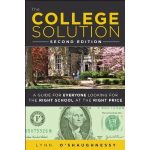On my college blog this week, I’ve been focusing on what you need to know about borrowing for college. If you missed them, my previous two posts shared advice on federal student and parent loans:
What You Need to Know About Borrowing for College
How Parents Can Borrow for College
Today I’m exploring private college loans.
Before turning to private student loans, students should exhaust their federal student loans first. The Stafford Loan is strictly designed for students and is the best option because of built-in protections. A surprising number of students however, do not max out their Stafford Loans before turning to private lenders. Don’t do that!
The Riskiest College Loans
Using private loans for college is riskier because borrowers have fewer rights than any other borrowers. People with mortgages, for instance, can walk away from a house or condo if they can’t keep up with payments. Families that can’t pay their bills due to a financial crisis, such as catastrophic medical bills, can declare bankruptcy. Plenty of people who can’t pay their tax bills are able to negotiate lower settlement amounts with the IRS.
There is no such safety valve for students who borrow through a private college loan. If you graduate from college and don’t have a job, private lenders aren’t going to be sympathetic. If private student loans were once again dischargable through bankruptcy, the number of students eligible for private loans would undoubtedly shrink, but lenders would actually have incentive to work with borrowers who are struggling. Anti-fraud provisions in the bankruptcy code, by the way, should prevent students from borrowing money they don’t intend to repay.
Currently if you default on your private college loan(s), your ultimate bill will simply grow larger and your credit history will be wrecked. And if your credit report includes a student loan default, you might not be able to find a decent apartment to rent and it can decrease your chances of getting a job when prospective employers run credit checks.
In contrast, if a student borrows though the federal Stafford Loan and has difficulty repaying they may qualify for the income-based repayment plan, which is a much-welcomed safety net. They can also request a forbearance or deferment.
Because private lenders enjoy the upper hand, they’ve made getting private loans easy to get. Consequently, plenty of students, who have no business borrowing through private lenders, are doing so. In extreme cases, students are leaving school with $50,000 or more in private loans.
Who Can Benefit from Private Student Loans?
Scared yet? If so, you should know that private loans can be a safer alternative for families who have more financial wherewithal and possess excellent credit. Why? Private loans provide better interest rates to these borrowers. The best rates that private lenders are offering today are in the 4.5% to 4.99% range. In contrast, the federal loan for parents – Parent PLUS – has one fixed rate for everybody – 7.9%.
Unlike federal loans, private college loan almost always come with variable interest rates. When rates rise, this will obviously increase payments. If you plan to repay the loan aggressive, the prospects of rising rates won’t be as big of an issue.
Who is Responsible for a Private College Loan?
Some parents like private loans because they want the responsibility for this debt to rest with their children. Students take out the loans, but they almost always require a cosigner. If graduates struggle to pay back debt, mom and dad would end up being on the hook. Some private loans, particularly those offered by credit unions, will release cosigners after borrowers have repaid their private loans for a certain period of time such as one year.
If private college loans interest you, tomorrow I’ll provide tips on how to shop for them and get the best deals.
Lynn O’Shaughnessy is the author of the second edition of The College Solution: A Guide for Everyone Looking for the Right School at the Right Price, which is available on Amazon for preorder. The book will be released May 2!
